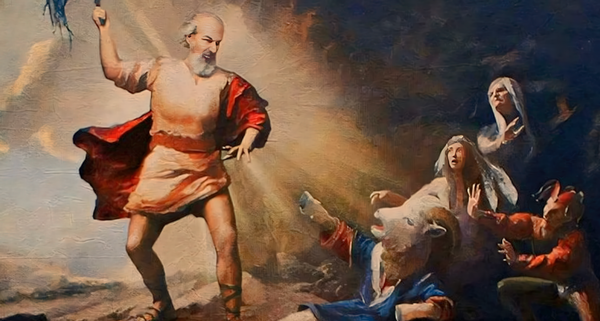Lamarck, Inheritance, and Instinct

Something has always troubled me about Darwin’s theory and even modern revisions of his work – there is still no explanation for instinct. Ethologists call instincts innate releasing mechanisms or IRM, which in layman’s terms means “we’ll use big fancy words because we just don’t know.” The most common definition is, “The mechanism by which an organism responds to a key stimulus (KS) with a fixed action pattern (FAP).” Of course, this explains nothing. This is one of the limitations of Darwin’s theory – it always has been. An earlier theory of inheritance was posed by the French zoologist, Jean-Baptiste Lamarck (1744-1829). From Understanding Evolution:
Lamarck’s scientific theories were largely ignored or attacked during his lifetime; Lamarck never won the acceptance and esteem of his colleagues Buffon and Cuvier, and he died in poverty and obscurity. Today, the name of Lamarck is associated merely with a discredited theory of heredity, the “inheritance of acquired traits.”
Darwin clearly ruled out “inheritance of acquired traits.” According to current thinking in genetics and in evolutionary biology, parents are unable to pass on anything other than their genes to their offspring. In another post I briefly mentioned that there is currently a debate among scientists about the role of proteins in the transmission of heredity. Some of Lamarck’s ideas have been picked up again by evolutionary biologist Richard Dawkins in the forms of memes. Memes are ideas rather than genetic material but they are subject to very similar selection criteria in nature.
Lamarck went a little too far by proposing that all organisms were headed toward perfection – a concept that Darwin took great pains to eliminate from his theories. Darwin was also vindicated by the science of genetics – it did appear that random mutations in genes were the only possible way an organism could change.
How does this relate to instincts? If there is no way to pass on knowledge from the parent to the offspring, how do animals inherit this information? For example, how do turtles return to the same beach where they were born to lay their own eggs? How does a bird know build a nest? Why does a human immediately after birth has a suckling instinct? Where do these things come from. The short answer is that no one really knows. The only scientist I know of that has really tried to tackle this topic is Rupert Sheldrake. Sheldrake’s second book, Presnce of the Past does an excellent job of summarizing some of the problems in biology today. Sheldrake even goes as far as testing these effect empirically through simple experiments. One of his favorite questions is: how do pigeons find their way home? No one has offered a theory to explain this. In fact, these topics are almost off limits to scientists because no one seems to have even a clue how these IRMs work.
Sheldrake’s theory of morphogenetic fields matches very well with Jung’s theory of archetypes. Jung never gave us a real cause for archetypes but only observed their presence and patterns. Jung’s answer was that we all share information and memories through the collective unconscious. It’s not clear if he sees archetypes as having always being there or patterns that have built up over millions of years. These archetypes show up in our dreams and our every day lives – they are usually completely unconscious to us. Like IRMs, archetypes beg the question – what are they really? Well, they appear to be inherited ideas or characteristics of ancestors – or at the very least collective ideas that are available to individuals of the same species. Sheldrake’s basic idea is that memories are stored, not in matter (the brain), but in time and space via morphogenetic fields. It’s a non-materialist view of memory and perhaps even a method for the transmission of acquired characteristics.
For more on recent research that is causing many geneticists and biologist to rethink inheritance, take a look at Science Magazine’s article, Inheritance Is More Than Gene Deep.




